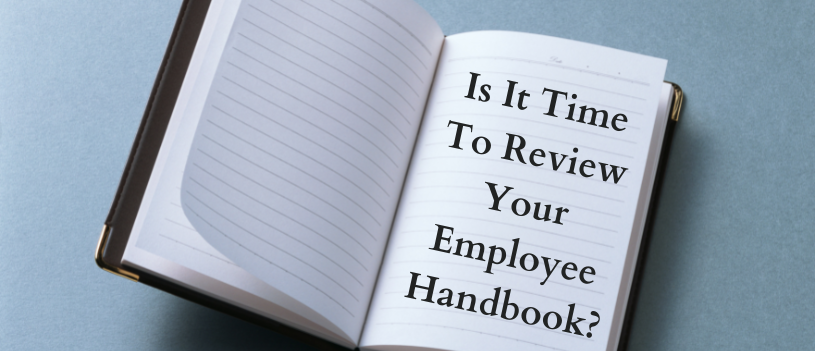Every employer should have an employee handbook available to their staff. No matter the size of business, handbooks are an essential workplace tool that helps guide philosophy and show employees what’s expected of them.
Items your handbook should cover include your business’ history, mission statement, and important guidelines to be followed. As you are reviewing your employee handbook, make sure your policies are also legal.
For example, if your handbook rules discuss confidentiality, social media, professional conduct, and offensive language, some restrictions on employees can be considered unlawful according to the National Labor Relations Board (NLRB).
The NLRB believes that employee handbooks may become a potential source of liability unknowingly to employers. The board has focused a lot on issues that involve “concerted protected activities”. This refers to employees coming together on matters related to their terms and conditions of employment.
All employees have the right to discuss workplace concerns. Not only can employees come together as a group to discuss them, but also a single employee can act on behalf of himself or others. If an employer were to interfere, this would be a violation of the rights of employees under section 7 of the National Labor Relations Act (NLRA).
Previously, the board challenged handbook policies that affected employee rights and the guidelines were very broad. However, in 2017, the board’s ability to micromanage handbooks was limited.
Due to the case The Boeing Co., which involved a rule in a handbook restricting employee camera use in the workplace, the NLRB changed their rules on how to manage handbooks. Prior to this case, the legality of handbooks was determined by whether employees could translate a handbook policy to limit their rights. After Boeing, the board used the case to limit their review to only policies that restricted concerted activity.
Fast forward to 2019, the Boeing standard was redefined due to the case known as LA Specialty Produce. This specific case came about from a communications policy that banned staff from providing information to the media. In the end, the rule was found lawful. The board adjusted their original view and decided that “an objectively reasonable employee who is aware of his legal rights but who also interprets work rules as they apply to the everydayness of the job” is acceptable. In other words, it is important that common sense plays a role in the analysis of the rule.
Today, the board may potentially go back to their former rule on handbook provisions. With this in mind, be aware of what employee conduct could qualify for protection including activity in support of social issues such as transgender rights, support of undocumented immigrants, Black Lives Matter, and more.
The board has already acted against major U.S. retailers. The NLRB took action against Home Depot due to a complaint from an employee regarding a company-wide dress code policy prohibiting staff from displaying political messages on their aprons. A similar scenario occurred regarding staff wearing political face masks at Whole Foods.
Now that the NLRF may be returning to their former standards of assessing work rules, carefully review your handbook rules to see if they are legal. It can be costly to go up against the NLRB if a case is brought against you. With this in mind, it would be beneficial to take the time to review your employee handbook annually to ensure nothing is questionable.
https://www.cpapracticeadvisor.com/2022/04/12/are-your-employee-handbook-policies-legal/
